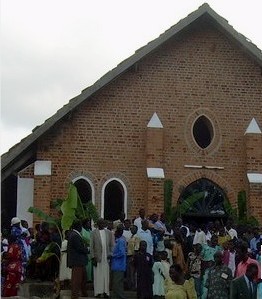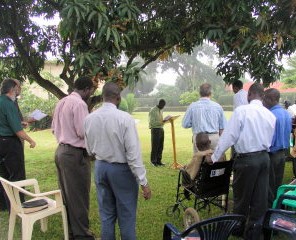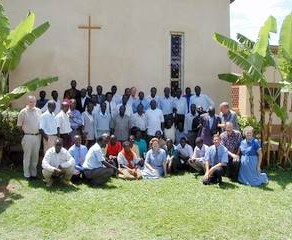|
Uganda Economy - Development | Society Uganda churches make big business of aid
These are among the conclusions in a PhD thesis about churches and development aid in Uganda by anthropologist Catrine Christiansen, presented this month at the Centre for African Studies in Copenhagen, Denmark.
"At the same time, the priests of the 'old' churches increasingly are accused of inappropriately taking money from their churches for their private spending," Ms Christiansen added. Conclusively, "I found that, in the area I visited, church engagement in development aid was connected with the personal interests of the priests to 'abuse' their churches to get access to external resources." Ms Christiansen holds that, while the Catholic and Anglican Churches were moving their clergymen from one parish to another, church leaders from the "new churches" instead were able to move their parishioners from one church community to another. Authoritative leaders of these autonomous "new churches" could therefore easily decide to which religious community the parish would belong. "Many new churches were founded by individuals or families owning a piece of land where the church was built. Therefore, it is often a family member that is appointed church leader and the family that dominates the parochial council. It is therefore the same persons that own and run the church," explains Ms Christiansen. "Some new churches therefore can appear like 'family companies', while others act more like a 'one-man firm'," adds the researcher. "This creates some entirely new dynamics w
Asked from where these churches were drawing development aid funds, Ms Christiansen said that all the projects she had studied in Ugandan churches were funded by religious organisations in the United States. The Danish anthropologist holds that her study includes important lessons for donors considering channelling their funds through churches in Uganda or other developing countries. While many churches were managing development projects well, such donations included large risks. "Therefore, I want to recommend Northern donors, in particular those seeking to promote the churches' role in society, to become more critical regarding how churches work as religious organisations and how their ways of working can fit into their establishment of new development projects," Ms Christiansen said. The researcher had gathered her data in the Ugandan field over a large period, from 1998 to 2008. During this period, Ms Christiansen also has worked as a researcher at the renowned Nordic Africa Institute in Uppsala (Sweden), studying how Ugandan rural churches provided aid to needing children. By Winnie Færk © afrol News - Create an e-mail alert for Uganda news - Create an e-mail alert for Economy - Development news - Create an e-mail alert for Society news
On the Afrol News front page now
|
front page
| news
| countries
| archive
| currencies
| news alerts login
| about afrol News
| contact
| advertise
| español
©
afrol News.
Reproducing or buying afrol News' articles.
You can contact us at mail@afrol.com










